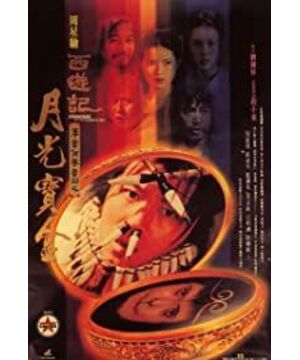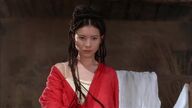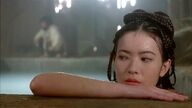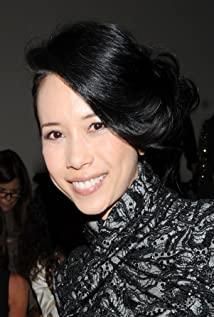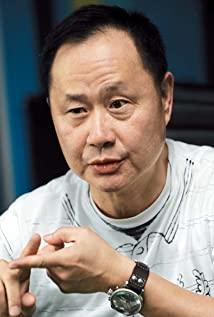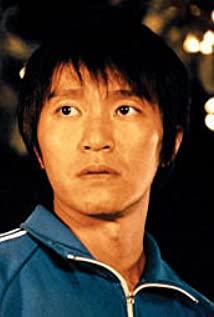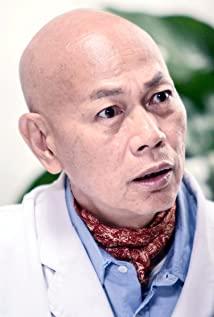In the current situation where jokes are popular, "Journey to the West" is often regarded as a joke. But jokes are jokes, mainly to replace the seriousness of the original or historical facts with novelty and comical forms, just to dazzle people's eyes and ears, and to have no spiritual connotation. "Journey to the West" is not. In fact, under the absurd and funny appearance of "Journey to the West", there is a deep spiritual connotation that is in line with Chinese classical culture, and is inextricably linked with many ancient classics. In the following article, I will briefly compare "Journey to the West" with several ancient classics. I believe that we can see the spiritual essence contained in it, as well as the internal relationship with the ancient classics and the form of borrowing from the past to open up the present.
"Journey to the West" and "Journey to the West"
The story prototype of Dahua Westward Journey comes from "Journey to the West". Comments on "Dahua Westward Journey" are generally divided into two categories: praise and criticism. The critics believe that "Dahua Westward Journey" is a re-creation of the original work of "Journey to the West". Brand-new image of Wukong; detractors believe that "Journey to the West" arbitrarily tampered with the original "Journey to the West", damaged the original image of Monkey King, and is a blasphemy to the classics. I think the detractors are completely wrong, and the praisers are not entirely right.
As an ancient literary classic, "Journey to the West" has been deeply rooted in the hearts of the people for hundreds of years. Wukong is regarded as the spiritual hero of the Chinese nation, and its exemplary significance goes without saying. However, it is precisely because it is too classic and too familiar to people that It fell into the same fate as countless other classics and became a "canon that doesn't need to be read."
The so-called "classics that do not need to be read" means that people are too familiar with the plot characters of a certain classic, and experts and scholars have commented on it too much throughout the ages, so that people have long been preconceived in their minds under the influence of their ears and eyes. The classic stories and classic characters are stereotyped here. In this case, even if you don't read the original book, you know what kind of story it is. Even if you read the original book, you will be led by your preconceived notions, and you won't be able to experience anything new at all.
But if a work can become a classic, it must not be stereotyped, and it must be able to adapt to the tastes of people of different times and groups. That is to say, it is highly inclusive and can accommodate countless different readers to run their imaginations in it, and everyone can read their own experience and understanding from it. This is where the lasting vitality of a work lies.
"Journey to the West" has many explanations from ancient times to the present. The contradiction between the nature of freedom and having to accept constraints” is generally accepted. I agree with the last point of view, but I have to make a further purely personal experience on this basis-"Journey to the West" reflects to a certain extent that in the process of human growth, the free essence of human nature is gradually restricted and even destroyed. dilemma.
For the convenience of explanation, I divide Sun Wukong’s life into four stages: 1. Childhood when Shuiliandong is called king; 2. Adolescence when making troubles in Heaven; maturity.
In the first stage, Sun Wukong, like any child, is ignorant, has no desires, is happy and free, and can be friends with many animals. A child's head, in fact, has no prestige and pomp, and at this time he is also more curious about knowledge, and basically all his life has been learned at this time.
In the second stage, Sun Wukong began to hope to be recognized by other people, to be recognized, and to increase his self-awareness like a teenager. All his actions were due to small vanity rather than utilitarian purposes. In fact, he came out of heaven not because he was a small official or had no real power, but because he was despised by others (the first time he was ridiculed that he was a little bitch, and the second time because there was no seat at the Pan Tao meeting). Tiangong is more willful or rebellious, definitely not a premeditated rebellion. In these two stages, it should be said that Sun Wukong's personality freedom has not been suppressed, but he has encountered obstacles everywhere when he integrates into the world of immortals, making him aware of the scorching state of the world. This is symbolic of the frustration that adolescents face in integrating into adult society.
Next, he has two choices: one is to return to Huaguo Mountain and continue to be a fairy; the other is to accept the responsibility of learning from the scriptures and achieve a positive result. Although the first type maintains the freedom of individuality, it is not accepted by the mainstream society; although the second type can be integrated into the right path, the individuality will be suppressed. This situation symbolizes a person's choice in youth: whether to maintain his individuality and live independently, or to kill his individuality and adapt to the society. It is easy to go astray and become a marginal person to choose the former, while it seems more reasonable to choose the latter, because it is in line with people's social dependence and group identity, but at the cost of annihilating individuality.
In the third stage, Sun Wukong experienced all kinds of hardships, and finally from a person with a strong personality, willful freedom, and no restraint, gradually became a person who conformed to the rules of the immortal world, and finally reached the fourth stage: becoming a Buddha, That is, a qualified social person.
These two stages embody the contradiction between the nature of freedom and social constraints, which is caused by the strong conflict between the freedom of human nature and the social nature of human beings. If the historical background and historical conditions are different, then Sun Wukong chooses to go west to learn scriptures because of the freedom of human nature and has to give way to the social nature of human beings.
From ignorance and ignorance, Sun Wukong hopes to be recognized and accepted, from resistance to various repressions, to having to accept the constraints of reality, until he finally achieves a positive result, fully adapting to the reality's repression of personality, the whole process is a person's spiritual growth. maturation process. (It might be a good thing to see this process from a worldly perspective, but I think it's an inevitable tragedy.)
Therefore, "Journey to the West" is, in a sense, a history of human spiritual growth. However, the classic novel "Journey to the West" seems to have missed a very important part. Zhang Xianliang once said: If a person has never been in love, he must be prejudiced against this society (to the effect). This sentence is quite reasonable. In people's growth experience, love does occupy a very important position, and it is an important factor in the formation of a person's world outlook and outlook on life. It should be said that what is missing in the classical novel "Journey to the West" is the link of love, but "Journey to the West" makes up for this defect.
Russell once said in the book "Toward Happiness" that love is valued because it is the source of happiness itself, and the loss of love is also the source of pain. This explanation may help us to understand "Westward Journey". "The Transformation of the Supreme Treasure.
From "Journey to the West", we can see that Sun Wukong's yearning for personality freedom is the same as the original work. He has always been escaping or resisting the constraints brought by the mission of learning Buddhist scriptures, evading the sanctions of Guanyin, and evading Tang Sanzang's endless preaching. It is an extension of the original spirit. His fascination with emotions and his idealized persistence are the modern meanings that "Journey to the West" gave Sun Wukong on the basis of the original work. In "Journey to the West", the contradiction between freedom and responsibility, indulgence and repression suffered by Sun Wukong has been further escalated than in the original work, and has developed to the point where it cannot be reconciled, so the result is even more tragic, that is, Sun Wukong will be eliminated by Guanyin . The only turning point at this time was that because of Tang Sanzang's intercession, Sun Wukong got a chance to be reborn.
This rebirth made Sun Wukong accept another ordeal in addition to the eighty-one difficulties, that is, the emotional ordeal. That is, through the pursuit of Bai Jingjing and Zixia by the Supreme Treasure, he made him understand the difficulty of realizing his ideals, the unpredictability and grasping of world affairs, the cruelty and cruelty of fate, and the difficulty and resentment of love between people. Yi (I once loved someone deeply, but I could unknowingly empathize with them, but I hated someone but I could continue to hate them for hundreds of years). This deep understanding of reality eventually led to the complete resignation of Sun Wukong. Only a person who has truly loved, especially a person who has lost his love, can truly and completely understand his real situation. This is the conclusion that "Journey to the West" brings us. In this way, "Journey to the West" recreates a Monkey King who still has a spirit of freedom and criticism, and is closer to human nature and modern people.
"Journey to the West" and "Journey to the West"
"Journey to the West" is often overlooked in the history of novels. Only Lu Xun's "A Brief History of Chinese Fiction" is more affirmative. I will not comment on its artistic value here, but to say that it has a structural relationship with "Journey to the West". Amazing coincidence. As far as I know, there are at least three sequels to "Journey to the West", "Post Journey to the West", "Continuation of Journey to the West" and "Journey to the West". The first two are extensions of the story of "Journey to the West", which is basically a reprint of the story of the Eighty-One Difficulties, while "Journey to the West" is intercepted from the road of learning scriptures, and then a novel fictional story that does not belong to the structure of the Eighty-One Difficulties. novel, and "Journey to the West" is the same at this point.
The stories in "Journey to the West" and "Journey to the West" are all on the way to learn from the scriptures, because Sun Wukong had a dream, thus interpreting a self-contained story. journey. The two stories are constructed into two different life experiences, but both have completed some unresolved grievances and grievances in them.
From the perspective of the development of the story, an important factor that promotes the change of the plot is completed by a large span of time and space. It's just that "Journey to the West" uses the Moonlight Treasure Box to travel through time and space, while "Journey to the West" describes Wukong's mistaken entry into the "Land of Mysterious Mirrors" and "turns it upside down" to travel through time and space. The similarity in form also creates a spiritual level. approximation.
In "Journey to the West", because of the occasional love in his heart, Sun Wukong was taken by the mackerel spirit and lured him into the "green world". The so-called mackerel or the green world actually refers to a "love" Just words. Wukong fell into it and had no choice but to return. Finally, fortunately, the old man in the void shouted, and he saw through the illusion of "Qingqing World", that is, saw through the illusion of love, and broke through one of the barriers of love, and then woke up from the big dream.
The same is true in "Journey to the West". The Buddha asked Wukong to fetch the Western Classics. He wanted him to become a true fruit. It was only because Tang Seng sacrificed his life to beg for mercy that he was given a chance to be reborn, let him fall back into reincarnation, and through the moonlight treasure box, he experienced the ups and downs of emotions, witnessed his past life and this life, and understood the word "love". Unable to grasp, "the greatest pain in the world is this", and through the hands of Chun Thirty Niang, he saw his true heart, so he became enlightened, broke through the relationship, decided to "no longer miss the least bit of lust in the world", and returned to the world. On the right path, he was born as a monk, detached from samsara, and all the original samsara is like a big dream that has nothing to do with him.
The first time I read "Journey to the West" in its entirety, it happened to be reading "Yuanjue Jing", and I felt quite involved. The Enlightenment Sutra is an important classic of the Huayan School of Buddhism. The so-called round ones should refer to reincarnation, and the so-called enlightened ones should be enlightened. Buddhists believe that the world we live in is a whirling world, that is, an imperfect world full of pain and misfortune. In life, there are endless cycles of reincarnation, and we cannot escape from it. We can only endure the suffering of reincarnation. So what is the cause? This is because everyone has desires, and desires give birth to love, and when there is love, there is reluctance to give up. Love and reluctance to give up create countless karmic obstacles, and the cause and effect are repeated and uninterrupted. If you want to get out of this cycle, you must first break all emotional barriers, cut off all desires, and then you can get a pure land, and then you can explore the results of karma and jump out of samsara. So how should we practice? The Buddha said: "Use illusion to cultivate illusion." Whether it's a big dream or strayed into the Myriad Mirrors, it is a metaphor that everything in the world is a dream bubble and is not worthy of nostalgia, but without experiencing this dream, there is no way to realize it.
Although neither of the two works is consciously talking about Zen, but because they both use: entering a dream - being fascinated by love - exploring the relationship between love - waking up from a dream, such a looping story structure, both of them unintentionally tell a story. The story of breaking stubbornness, abstinence, and reincarnation. It's just that the times are different, and the two works have different understandings of emotion and different emphasis. "Journey to the West" is closer to Buddhist theory, showing the delusion of "emotion"; "Journey to the West" is more about the confusion of contemporary people about emotions.
(Note: The author of "Journey to the West" is Dong Shuo. When he was five years old, the teacher taught him to start reading, but he just didn't open his mouth. He had to ask him what book he wanted to read. )
"Journey to the West" and "A Dream of Red Mansions"
In Chinese classical novels, there are many stories that the gods in the sky will be driven to the lower realms because of some mistakes (usually because of the blazing hearts of ordinary people), experience the pain of life, and know that the world is not worth lingering on. In this place, all the beautiful things are just a momentary mirror, and they will not bring real happiness to people, but are just the root of all troubles, so I get a thorough understanding, return to the heaven, and continue to go to the kind of feeling that seems to be at ease, but without desire The life of an immortal without seeking, this process is called "life calamity".
The reason why I only use "A Dream of Red Mansions" here for comparison is because "A Dream of Red Mansions" is a collection of classical novels, and I use it as a representative.
In "A Dream of Red Mansions", the waiter of Shenying was a temporary "every heart and even blazing", so he was reincarnated as Jia Baoyu, experienced the prosperity of the wind and the moon, and at the same time saw the decline of the entire family in the end of the world, and more importantly, cut him off with Daiyu and Baoyu one by one. The love of hairpin and even Shi Xiangyun and others. The emotional failure eventually led him to completely see through the world and escape into the empty door. Sun Wukong is also because he is immortal and shows mercy everywhere, so he was subdued by Guanyin and gave him a chance to be reborn as a supreme treasure. His true love, Zixia, and the failure of this relationship finally made him fully enlightened and re-invited to Buddhism. Fairy Jiangzhu was reincarnated to repay the kindness of Shenying's nectar, to break the front line between her and Shenying's servants. Fairy Zixia was originally a lamp wick. She went to the realm in order to find her lover, in order to break the marriage between her and the Supreme Treasure arranged by the gods. In the end, because of "meeting and hating the night to create people to make people", she was in vain. To protect the supreme treasure and die is also to die for love. In the end, the resentful returned the resentment, the kind repaid the kindness, Jia Baoyu merged into the wilderness, Tang Seng and his apprentice walked towards the mountains, and the white land was really clean.
Both are a marriage arranged by God, one has a "mud and stone alliance" covenant, and the other has a purple and green sword as a letter, but they both ended in failure, so what did God arrange for this marriage? In order to get rid of some unbroken mortal relationships, but to get rid of a few immortal mortal hearts? The story of this failed love is the whole process of "debacle". And when everything was over, the author told us that it was just a dream, it was a downplay of the tragedy, and it was also a helpless sigh, but after watching it, a few people were really relieved. , don't laugh at the stupidity of the world."
View more about A Chinese Odyssey: Part One - Pandora's Box reviews


